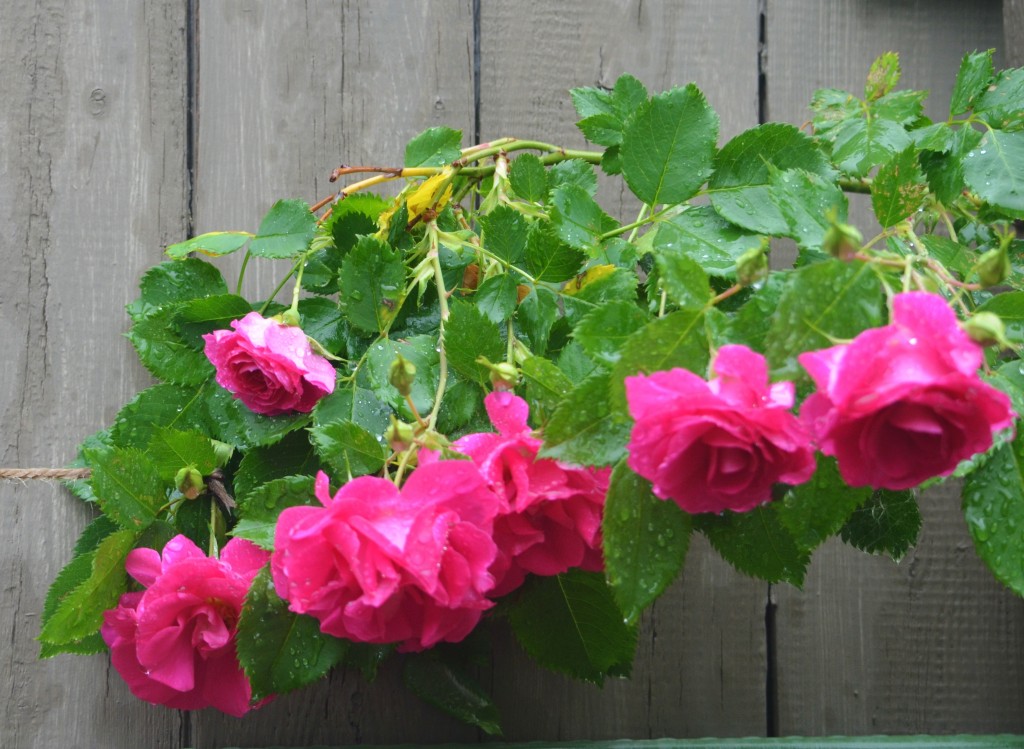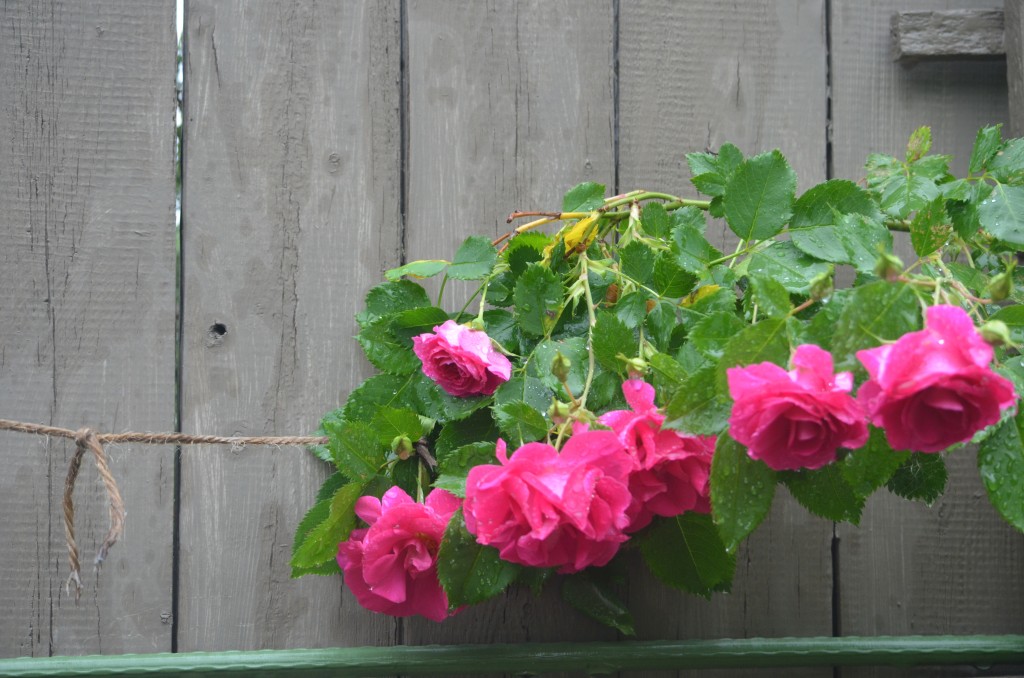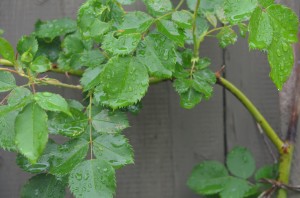I was out snapping pictures and while I was capturing the rain laden blooms on ‘Cpt Sam Holland’ , a climbing rose, I was reminded of a lesson I give often when talking about roses.
To get the most flowers out of a climbing rose you need to know a few things about how the plant grows.
First and foremost, climbing roses grow on what are called main canes, these are the primary canes that grow out of the base of the plant, These canes should always remain on the plant and never be pruned off unless you have severe die-back or disease issues.
Growing from the main canes are many side shoots, called lateral canes, or laterals for short, and these canes are where the flowers will come from. Due to a plant behavior called apical dominance, when these canes are left to grow vertically only the top ( ‘apical’) buds will produce flowers.
On the other hand, if you train the main canes horizontally all of the buds will be in essence the top, or apical buds and they will all produce flowers. In this photo I took, although the flowers are currently hanging down with the weight of the rain water, the main cane has been tied to grow at almost 90 degrees from the base,that is why there are flowers all along it instead of just at the top.
Below is the uncropped photo so you can see the twine that is holding the cane horizontally ( the green stake below that is holding the another cane trained below this one).
If you are growing a climbing rose on a pillar or obelisk, the way to train the main canes is to wrap them in circles spiraling up the structure so as you get as much horizontal placement of the main canes as possible, and hence more flowers.
Paul Zimmerman, one of my fav rose experts, has some great videos that explain the process as well and the links can be found by clicking here
The laterals, or side shoots, are also the ones you want to prune when you need to reduce the size of the rose . the grow anew each year so you won’t loose flowers if you cut them back.
So, in a nutshell, to get the most out of your climbing rose, train the canes to grow at between 45 and 90 degree angles from the base of the plant .